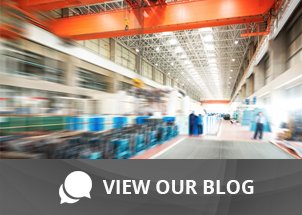BLOG
Side by Side Comparison: RFID & Barcoding
 In a recent blog, we highlighted the features and benefits of RFID and the types of applications where RFID thrives. In this blog we’re going to break out the differences between the two technologies and give you an opportunity to think about how each of these methods might benefit you in the warehouse.
In a recent blog, we highlighted the features and benefits of RFID and the types of applications where RFID thrives. In this blog we’re going to break out the differences between the two technologies and give you an opportunity to think about how each of these methods might benefit you in the warehouse.
Comparing the two technologies
Although the technology is different between the two, both RFID and barcoding accomplish the same task. However, one may be better suited over another based on your workflow requirements and type of data collection you need to perform. They are very similar in some ways, and different in others. For example, if you need to track inventory, people, equipment and other assets, then both barcoding and RFID fit the bill because both are designed to collect data. The data being collected can be captured by a handheld or fixed device, which makes them similar. Some organizations use both technologies, but for different applications.
RFID and Barcoding: How are they different?
|
Barcoding |
RFID |
|
Scan one barcode at a time. |
Many RFID tags can be scanned at once |
|
User must be in close proximity in order to scan a barcode, although with long-range scanning devices some can scan from as far away as 50 ft based on the barcode size. |
RFID uses technology, so scanner only needs to be in range in order to read tags. Ranges vary based on frequency, but most read within the range of 500 ft. |
|
The volume of data that can be stored within a barcode can be as much as 800 to over 1000 characters. |
Most RFID tags store about 2KB of data, but with passive UHF tags you can store 4KB to 8KB of data. |
|
Devices can be fixed, but most are handheld, wearable or vehicle mounted. |
With RFID, many tag readers are mounted in doorways and other areas that can easily be ‘passed through’, but there are some applications that also use handheld scanners. |
Advantages of RFID
- RFID tags are very durable and withstand the rigors of a harsh environment like a warehouse, distribution center or manufacturing plant.
- Although initial costs are higher than barcoding, over time the benefits of RFID offer a positive return on investment (ROI).
- Because RFID offers the opportunity to scan many tags at once time, this technology offers much greater operating efficiencies.
- RFID is great for material handling vehicle operators because they don’t have to get on and off the forklift in order to scan barcodes. Simply picking up or dropping off tagged items allows the data to be recorded when passing through a reader or portal.
- Unlike barcode labels, RFID tags are very durable.
Advantages of Barcoding
- Barcoding technology has been around for a long time, which has enabled costs of barcode scanning devices (both handheld scanners and mobile computers) to come down.
- Although RFID allows scanning of multiple items, it can sometimes be much easier with barcoding; particularly when scanning a specific shipment on a pallet which contains many items of all shapes and sizes. Even though barcoding generally can’t scan multiple items at once, the level of accuracy may be much higher in this type of situation.
- From a durability standpoint, you have the option of obtaining barcode labels that are suited to your environment (exposure to heat, liquid, fluctuations in temperature, attaching to certain materials, etc.), whereas with RFID things like liquid or metals can virtually deactivate the RFID antenna and prevent the tag from transmitting.
- Deployment and implementation are quick and easy, with the ability to have your vendor set-up and configure your devices before they arrive.
Which technology is right for you? Maybe a hybrid of both is a smart solution for you – we can help you determine the best course of action for your application(s) with an on-site assessment. Contact us to set up an initial consultation and find out which approach may be best for your business.






